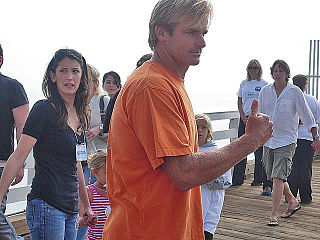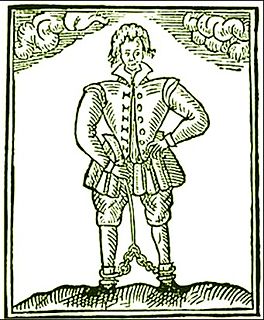A Quote by Euripides
Children are sweet as the buds in spring, But I've noticed that those who have them Have nothing but trouble all their lives.
Related Quotes
We sometimes observe that spoiled children contract a habit of annoying quite wantonly those who have charge of them, and seem tomeasure their own sense of well-being, not by what they do, but by the degree of reaction they can cause. It is vain to get rid of them by not minding them: if purring and humming is not noticed, they squeal and screech; then if you chide and console them, they find the experiment succeeds, and they begin again. The child will sit in your arms contented if you do nothing. If you take a book and read, he commences hostile operations.
And then the rose-border. What intensity in those odorous buds of the Bon Silene, making the very spirit bound as though a message had reached it from heaven. And the verbena bed is compassed with fitful fragrance. Even the pansies, with their dewy eyes, are ready to rival the violets now.... Nor must the purple buds of the calycanthus be forgotten. 'Sweet-scented shrub' indeed; for let me hide but a single one of these in some fold of my dress, and the spices of Araby will float around me till the evening.
When I was in therapy about two years ago, one day I noticed that I hadn't had any children. And I like children at a distance. I wondered if I'd like them up close. I wondered why I didn't have any. I wondered if it was a mistake, or if I'd done it on purpose, or what. And I noticed my therapist didn't have any children either. He had pictures of his cats on the wall. Framed.
The seasons alter: hoary-headed frosts
Fall in the fresh lap of the crimson rose,
And on old Hiems' thin and icy crown
An odorous chaplet of sweet summer buds
Is, as in mockery, set. The spring, the summer,
The childing autumn, angry winter, change
Their wonted liveries, and the mazed world,
By their increase, now knows not which is which.
Spring, the sweet Spring, is the year's pleasant king;
Then blooms each thing, then maids dance in a ring,
Cold doth not sting, the pretty birds do sing-
Cuckoo, jug-jug, pu-we, to-witta-woo!
The palm and may make country houses gay,
Lambs frisk and play, the shepherds pipe all day,
And we hear aye birds tune this merry lay-
Cuckoo, jug-jug, pu-we, to-witta-woo!
The fields breathe sweet, the daisies kiss our feet,
Young lovers meet, old wives a-sunning sit,
In every street these tunes our ears do greet-
Cuckoo, jug-jug, pu-we, to-witta-woo!
Spring, the sweet Spring!
Do not feed children on a maudlin sentimentalism or dogmatic religion; give them nature. Let their souls drink in all that is pure and sweet. Rear them, if possible, amid pleasant surroundings ... Let nature teach them the lessons of good and proper living, combined with an abundance of well-balanced nourishment. Those children will grow to be the best men and women. Put the best in them by contact with the best outside. They will absorb it as a plant absorbs the sunshine and the dew.





































